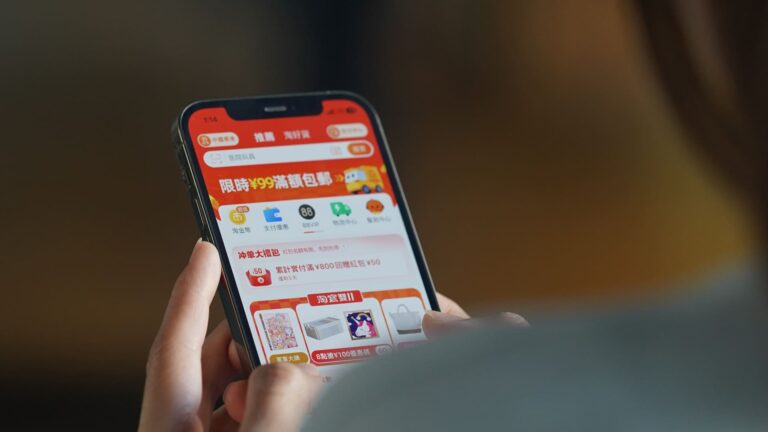Chinese e-commerce giant Alibaba’s Taobao and Tmall reported strong sales in categories eligible for government subsidies.
Serene Lee | Sopa Images | Lightrocket | Getty Images
China’s latest shopping festival, which wrapped up Wednesday, pointed to a pickup in consumption, as e-commerce companies reported strong sales of consumer electronics, as well as beauty and pet care products.
The 618 festival is one of the biggest promotional periods of the year in China as Alibaba, JD.com and other major Chinese e-commerce platforms roll out discounts.
This year, the festival’s gross merchandise value, a measure of sales over time, surged by 15.2% from last year to an estimated to 855.6 billion yuan ($119 billion), according to retail data provider Syntun.
That points to some recovery in consumption, after Syntun data for last year’s 618 festival revealed a year-on-year decline in sales for the first time in eight years. However, as has been the case with other annual shopping events, retailers expanded the promotional period to start May 13, a week earlier than in 2024, before ending June 18.
Still, JD.com said the number of shoppers participating hit a record high, more than doubling year on year between May 30 and June 18 to an unspecified figure. More than 2.2 billion orders were recorded across JD’s channels, which include online and offline stores, food delivery and quick commerce, according to the retailer.
Investors were surprised Monday by a better-than-expected 6.4% increase in national retail sales in May from a year ago — the fastest increase since December 2023, according to official data accessed via Wind Information.
Chinese consumers are spending “a lot of money on outerwear. Cosmetics and beauty doing really well,” Jacob Cooke, co-founder and CEO of WPIC Marketing + Technologies, told CNBC on Friday. The company helps foreign brands — such as Vitamix and iS Clinical — sell online in China and other parts of Asia.
His firm estimates that gross merchandise value during 618 grew by around 14.1% from a year ago, pointing to a slightly slower increase than what Syntun reported.
He also pointed to growing numbers of customers outside of China’s big, well-known cities, based on the packages he’s seen leaving his company’s warehouse.
Subsidy impact
Beijing’s trade-in program to subsidize certain consumer products such as consumer electronics helped boost sales.
Household appliances emerged champion among the categories, bringing in 110.1 billion yuan in sales, while beauty and skin care products clocked in 43.2 billion yuan in sales, according to Syntun.
Similarly, Chinese e-commerce giant Alibaba‘s Taobao and Tmall reported strong sales in categories eligible for government subsidies — with initial sales more than tripling from the same period around the Nov. 11 Singles’ Day shopping festival, indicating increased consumer interest in the newest batch of subsidies.
Taobao’s generative artificial intelligence tools also boosted sales. Its…
Read More: Is China going through a consumption revival? 618 festival suggests so



